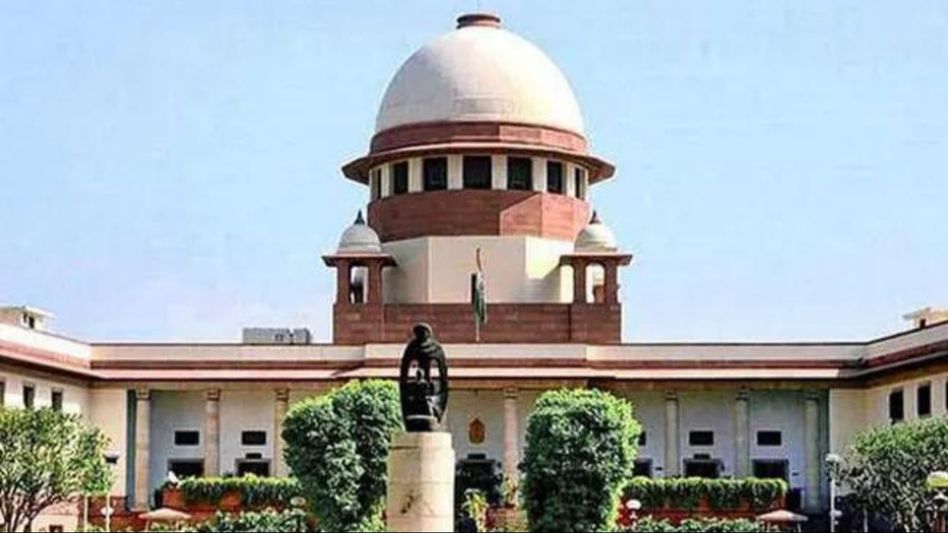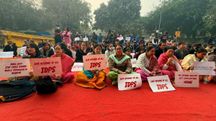Supreme Court upholds Centre's authority to appoint Delhi's chief secretary, extends term of Naresh Kumar
The Supreme Court on November 29 allowed the Union Government to extend by six months the term of the Chief Secretary of the Government of the National Capital Territory of Delhi (GNCTD), Naresh Kumar.

The Supreme Court on November 29 allowed the Union Government to extend by six months the term of the Chief Secretary of the Government of the National Capital Territory of Delhi (GNCTD), Naresh Kumar, who is otherwise due to retire tomorrow.
The Court decided that the Central Government may name the Chief Secretary of the Delhi Government and that it could also decide to prolong the superannuating officer's tenure. The Court made it clear that its opinions are preliminary in nature and are contingent on the Constitution Bench's decision regarding the legality of the Center's services statute.
The Delhi Government asked the bench, which included Justices JB Pardiwala, Manoj Misra, and Chief Justice of India DY Chandrachud, to stop the Union from extending Kumar's term as Chief Secretary. The plea was denied.
The Delhi Government had filed a writ challenge against the Union for unilaterally selecting a Chief Secretary or extending the tenure of the current one without consulting it. The court was now considering the issue.
Also Read: Cabinet approves Central Sector Scheme for providing Drones to Women Self Help Groups
The panel rejected the Delhi Government's argument by citing the recently enacted Government of NCT of Delhi (Amendment) Act 2023, a services law that grants the Centre superintendence over GNCTD services. The Act continues to operate as intended even if the question of its legitimacy has been brought to a Constitution Bench.
The bench also noted that public order, law enforcement, and land are three areas that the Delhi government is not allowed to handle under the Constitution. The Chief Justice emphasised that the Chief Secretary must also handle these items that are omitted.
In support of the GNCTD, senior advocate Dr Abhishek Manu Singhvi contended that the GNCTD ought to have a voice because the Chief Secretary is handling a hundred other issues that are only the responsibility of the Delhi Government. The bench, however, rejected the claim that the Chief Secretary's responsibilities need to be divided in that way. "GNCTD does not have jurisdiction over entries 1, 2, and 18. Chief Secretary, among other things, carries out duties under entries 1, 2, and 18. You cannot, despite your best efforts, divide the duties into those that come under those entries and those that don't," CJI informed Singhvi.
Alternatively, Singhvi said that the Centre lacks the authority to prolong the superannuating officer's tenure. Is there any rationale for designating an individual in whom the government has no faith? And why ought that individual's position to be kept open?" The Chief Secretary of Delhi has never had his term extended before, and the State Government has always been consulted before making an appointment. "In Delhi, there was a female chief minister. This never occurred. After five years, Government A in Delhi was equaled by Government B in the centre, according to Singhvi.
"We can't postulate that in those 5 years, only the government of Centre was reasonable, even the state government was reasonable. Now both of you can't see eye to eye," came the CJI's quick retort. As a concession, Singhvi suggested that the Chief Minister and the Lieutenant Governor can sit with five to ten names and the Government will accept a name picked by the LG, instead of extending the incumbent's term. Referring to the judgment in EP Royappa's case, Singhvi said that the Chief Secretary is an important functionary, a "linchpin" of the administration.
Does the Centre's power to appoint include the power to extend? The Central Government relied on Rule 16 of the All India Services (Death cum Retirement Benefit) Rules 1968 to justify the power to extend the term of the Chief Secretary. This Rule provides that the term of a superannuating Chief Secretary can be extended for a period of six months on the recommendation of the State Government with the prior approval of the Central Government. Solicitor General of India Tushar Mehta argued that in the context of officers belonging to the AGMUT cadre, the State Government should be read as Central Government. SG also referred to the Government of India (Allocation of Business) Rules 1965.
According to Section 45A(d) of the GNCTD Act , "Chief Secretary" means the "Chief Secretary of the Government of National Capital Territory of Delhi appointed by the Central Government", the SG pointed out. Countering Singhvi's submission that this was merely a definition clause, SG said that this provision clarified that the power of appointing the Chief Secretary was with the Central Government. He added that there are as many as 57 instances of extensions being granted to superannuating Chief Secretaries of various States.
Senior Advocate Sanjay Jain, appearing for the Delhi LG, referred to the paragraphs in the 2023 Constitution Bench judgment which underscore that GNCTD's powers over services do not extend to subjects of land, public order and police. Court's observations in the judgment In the judgment, the bench noted that Rule 55(2) of the Transaction of Business of the Government of National Capital Territory Rules 1993 provided that LG must make a prior reference to the Union Ministry regarding the proposals for the appointment of the Chief Secretary, Commissioner of Police, Secretary (Home) and Secretary (Land). This is for the reason that these subjects are excluded from the Delhi Government's purview.
The GNCTD Amendment Act 2023 also provided that officers dealing with the excluded subjects need not be appointed following the consultative mechanism through the National Capital Civil Service Authority. This is by virtue of Section 45A(i) inserted to the Parent Act. There can be no dispute about the basic position that the Chief Secretary, being the head of the administration, performs an administrative function over all matters relating to the GNCTD, including the excluded subjects. It would not be either possible or practical to divide the functions of the Chief Secretary or bifurcate them between those areas which fall within the domain of GNCTD or those which fall outside.
Since the Chief Secretary performs important functions, it would be far-fetched to postulate that the Central Government would be divested of the power to appoint the Chief Secretary of the Delhi Government, the bench held. The post of Chief Secretary in the GNCTD is a post entrusted with significant functional responsibilities including overall administrative control and supervision over subjects which also stand excluded from the legislative domain and executive powers of GNCTD.
The bench further held that Rules 16 of the All India Services (Death cum Retirement Benefit) Rules apply to the officers of the GNCTD and in relation to the officers exercising the functions under the excluded subjects, the Central Government has the power to extend their tenure.
"We conclude that at this stage, bearing in mind the judgement of this court in CB 2 and subsequent developments, the decision of the Union Govt to extend the services of Chief Secretary for 6 months cannot be construed to be violative of law," the bench held.
The bench clarified that the analysis in the judgment is confined to a prima facie evaluation, without entering into issues pending adjudication before the Constitution Bench.
Copyright©2025 Living Media India Limited. For reprint rights: Syndications Today









